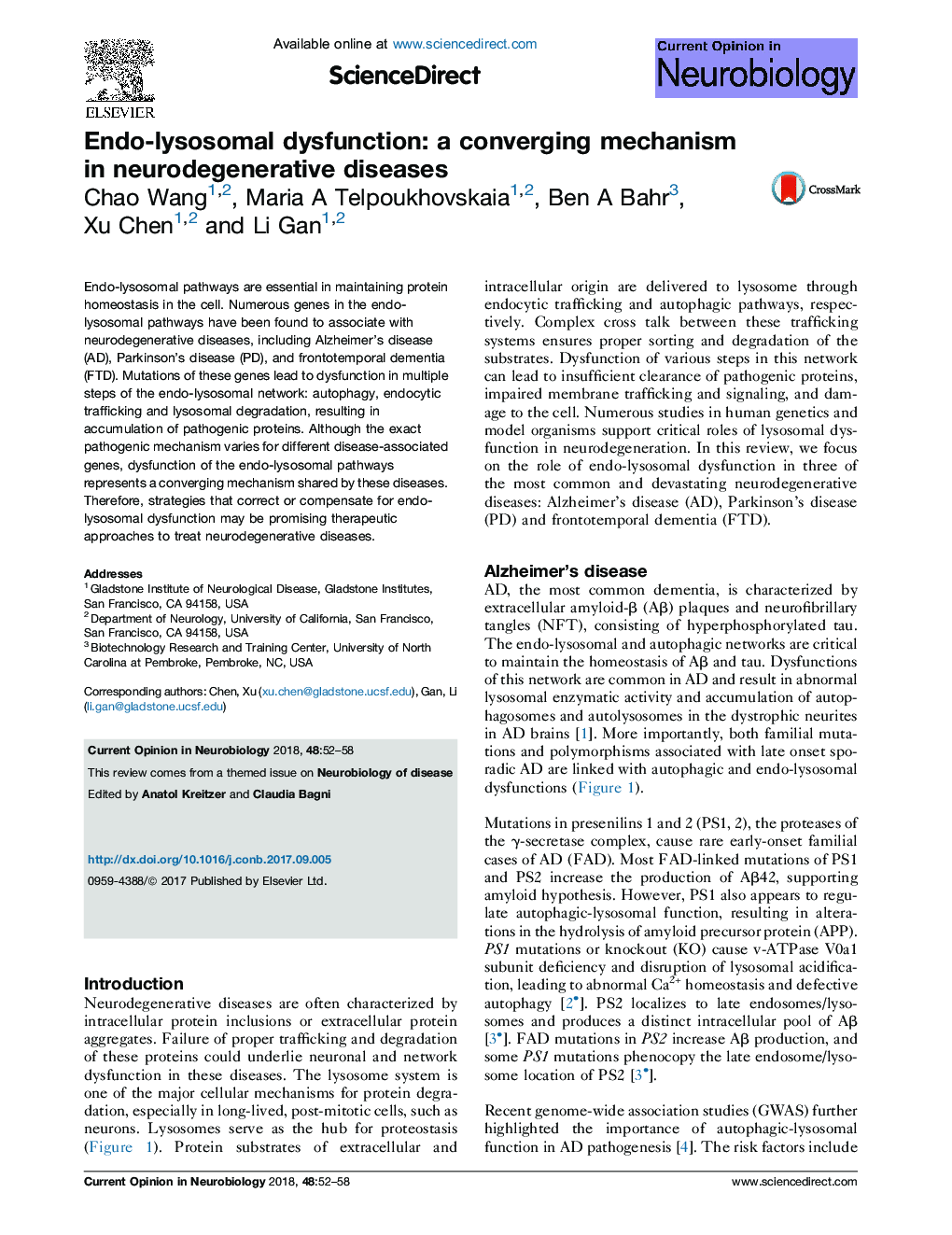| Article ID | Journal | Published Year | Pages | File Type |
|---|---|---|---|---|
| 5736960 | Current Opinion in Neurobiology | 2018 | 7 Pages |
â¢Multiple genes for AD, PD and FTD are involved in the endo-lysosomal pathways.â¢Dysfunction of endo-lysosomal pathways impairs degradation of pathogenic proteins.â¢Key components in the endo-lysosomal machinery may be therapeutic targets.
Endo-lysosomal pathways are essential in maintaining protein homeostasis in the cell. Numerous genes in the endo-lysosomal pathways have been found to associate with neurodegenerative diseases, including Alzheimer's disease (AD), Parkinson's disease (PD), and frontotemporal dementia (FTD). Mutations of these genes lead to dysfunction in multiple steps of the endo-lysosomal network: autophagy, endocytic trafficking and lysosomal degradation, resulting in accumulation of pathogenic proteins. Although the exact pathogenic mechanism varies for different disease-associated genes, dysfunction of the endo-lysosomal pathways represents a converging mechanism shared by these diseases. Therefore, strategies that correct or compensate for endo-lysosomal dysfunction may be promising therapeutic approaches to treat neurodegenerative diseases.
